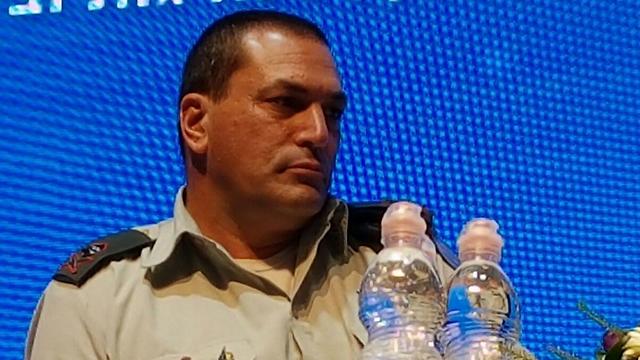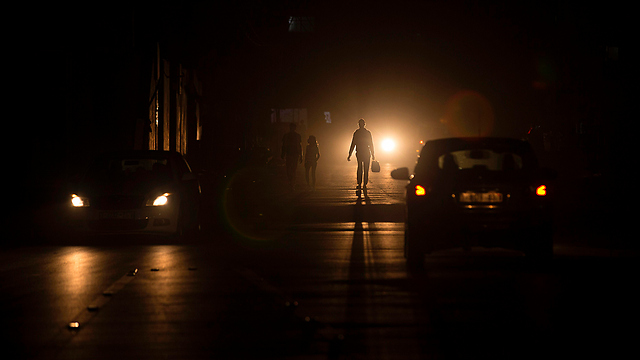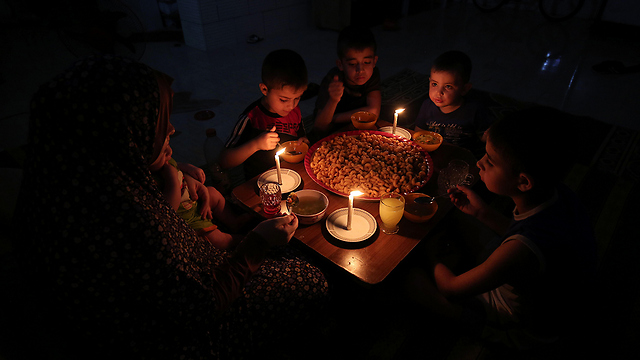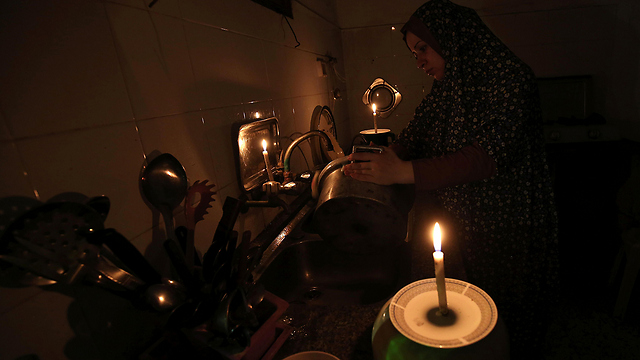Egypt sends fuel for Gaza’s only power plant to allow for nearly eight daily hours of power for three days; shipment a sign of improved Egypt-Hamas relations; Israel reduced electricity supply to Gaza after PA reduced payment.
GOC Southern Command Maj. Gen. Eyal Zamir accused Hamas on Wednesday of being the main cause of the electricity crisis in the Gaza Strip.
Speaking at a ceremony marking 30 years to the establishment of the Gaza Division, Zamir said Gazans should lay the blame squarely on Hamas’s shoulders.
“As long as Hamas continues being an element threatening Israel, Gaza’s basic problems won’t be resolved,” he said. “Hamas invests the little resources in the strip to continue developing its military capabilities at the expanse of the residents of the strip.”

The GOC Southern Command also addressed the possibility the electricity crisis could lead to an escalation of violence between Hamas and Israel, stressing, “Calm will be met with calm. We’re committed to protecting our borders and cities. In a conflict, we will ensure the enemy is not safe and is surprised at every corner. We will continue to strengthen the capabilities of the division and prepare to all manner of threats, above ground and below it.”
Egypt sends fuel to Gaza
Egypt sent fuel on Wednesday to the Gaza Strip’s only power plant to help alleviate an energy crisis that has left the Palestinian enclave’s two million residents with less than three hours of electricity per day, further exacerbating its humanitarian crisis.
The delivery, a sign of improved relations between Hamas and Egypt after years of friction, was the first official import of Egyptian diesel to Gaza since Hamas took over the enclave in 2007 and could provide seven hours of power for three days.

Fuel from Egypt used to be smuggled through tunnels, many of them now destroyed by Cairo, which said they were conduits for weapons and militants battling Egyptian forces in the neighbouring Sinai peninsula—an allegation denied by Hamas.
Gaza’s power plant has been off-line for two months due to a payment dispute between the Palestinian Authority, based in the West Bank, and Gaza’s Hamas rulers.
The Palestinian Authority has cut payments for its Israeli electricity supply, arguing that Hamas is not reimbursing its share of the cost, and Israel has therefore cut the power supply by almost a third.

Diesel tankers, flying the Egyptian and Palestinian flags, crossed into Gaza two days after the Israeli supply cuts began.
The imports were agreed at talks in Cairo this month between Gaza’s Hamas chief, Yehya Al-Sinwar, and Egyptian security officials. Sources close to those negotiations said the deal was also facilitated by Mohammad Dahlan, a Fatah rival of Abbas living in Abu Dhabi.
Any worsening of the energy crisis could cause the collapse of health services, local health officials said. Hospitals largely rely on generators for power, as do Gaza residents who can afford the high cost of fuel to run them.

Palestinian President Mahmoud Abbas’s decision to cut the payments was coupled with calls from Palestinian officials for Hamas to relinquish control of Gaza, which Hamas seized from fighters loyal to Abbas’s Fatah movement in 2007.
The one million litres (264,000 gallons) in the shipment on Wednesday could be followed by another one million litre delivery later in the day or on Thursday, the Hamas-appointed deputy finance minister in Gaza, Youssef al-Kayali, said.
As reported by Ynetnews
